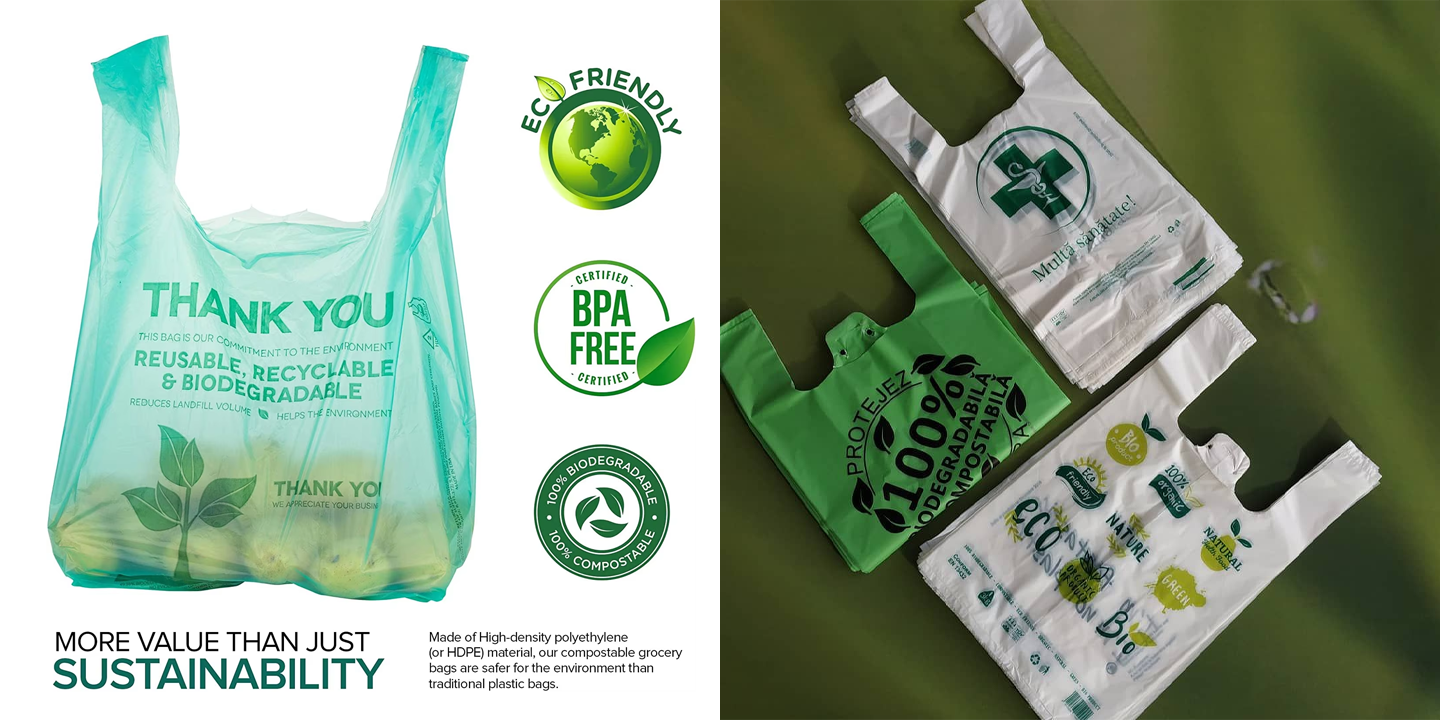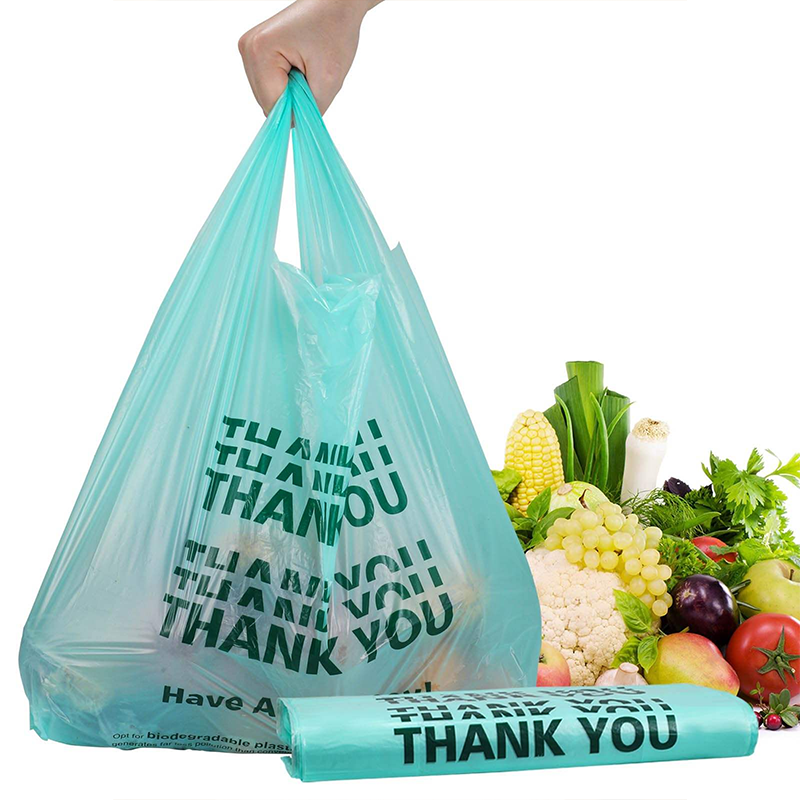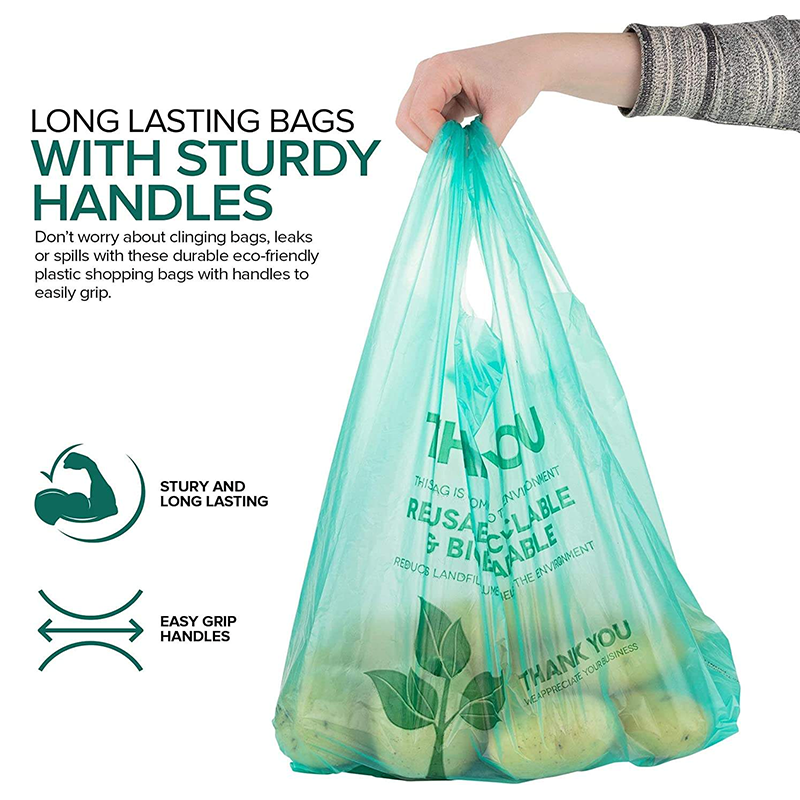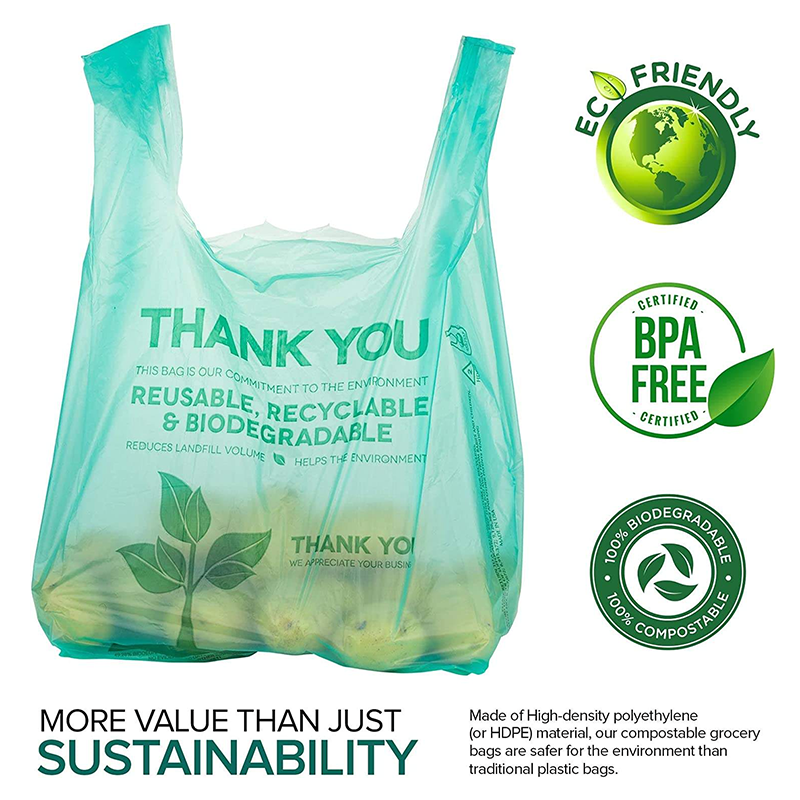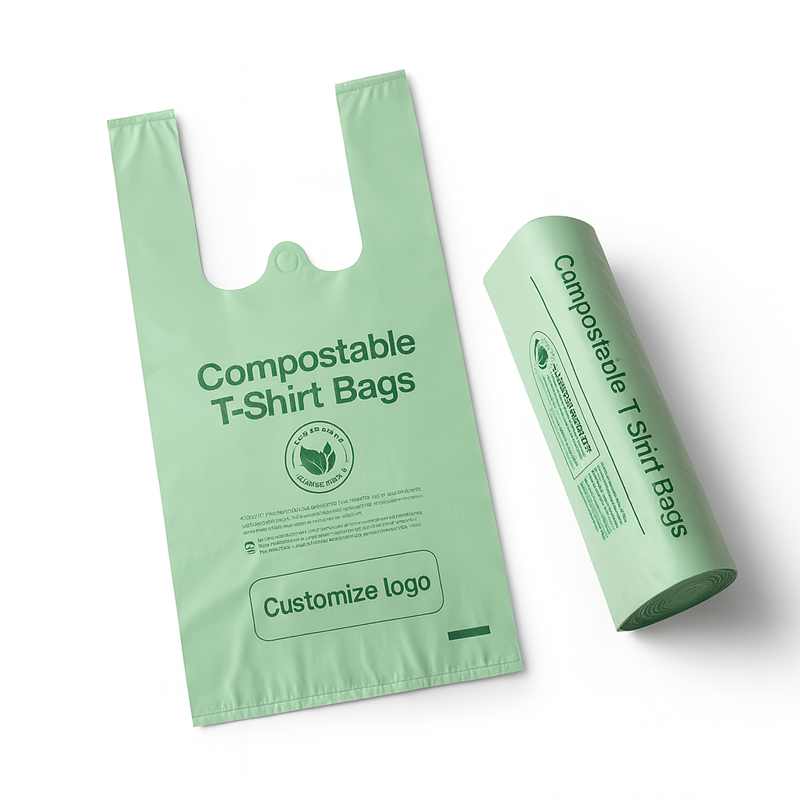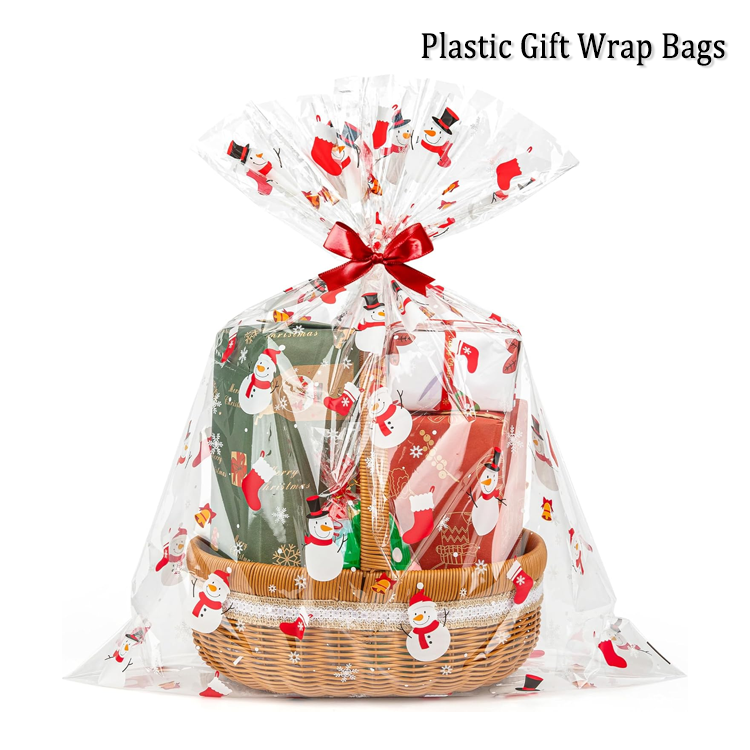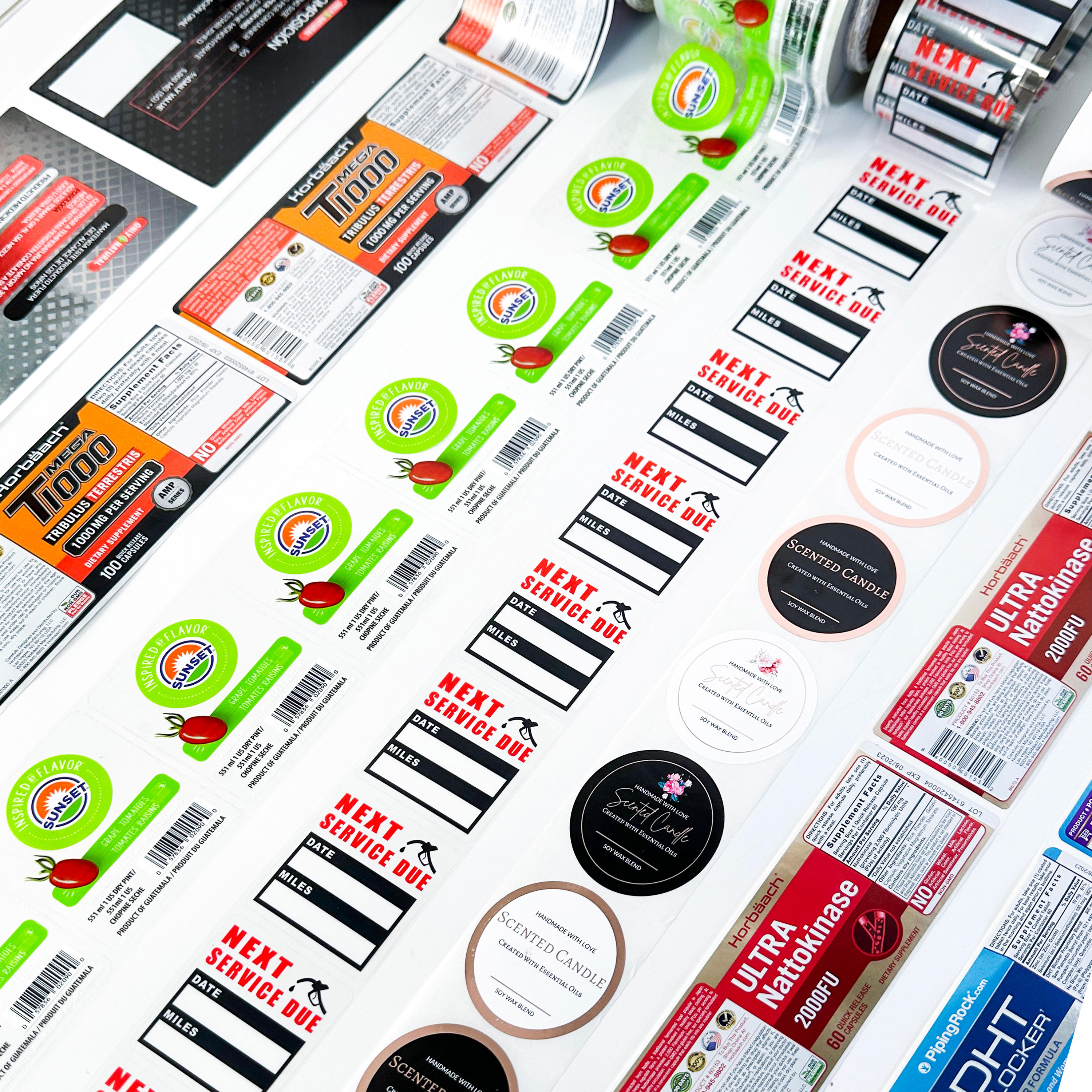Custom Biodegradable Vest Bags
Biodegradable and compostable vest bags, made from plant-based materials like cornstarch and PLA, offer an eco-friendly alternative to plastic bags. They break down safely, reduce pollution, and meet strict international standards. Ideal for retail, food service, and organic waste programs, these durable and versatile bags support sustainability goals and help businesses comply with green regulations
- Overview
- Recommended Products
| Product name | Custom PBAT Compostable Biodegrade T-shirt Packaging Bags |
| Compostable Vest Shopping Bag | |
| Material | PBAT + PLA + CORN STARCH |
| Handle | Vest handle or flat |
| Usage | Supermarkets, homes, convenience stores, etc |
| Size | Standard size or custom |
| Application | Flexible Packaging |
| Color | White, clear, black, red, blue or as your customized |
| Thickness | Standard or custom |
| Printing | Customers' requirements |
| Features | 1. Different size, design, color are available. |
| 2. Disposable, Waterproof, Dustproof, Lightweight, economical. | |
| 3. Debossed or embossed are welcome. | |
| 4. OEM orders and small orders are welcome. | |
| 5. All registered characters/logos/trademarks are shown for reference purpose only. |
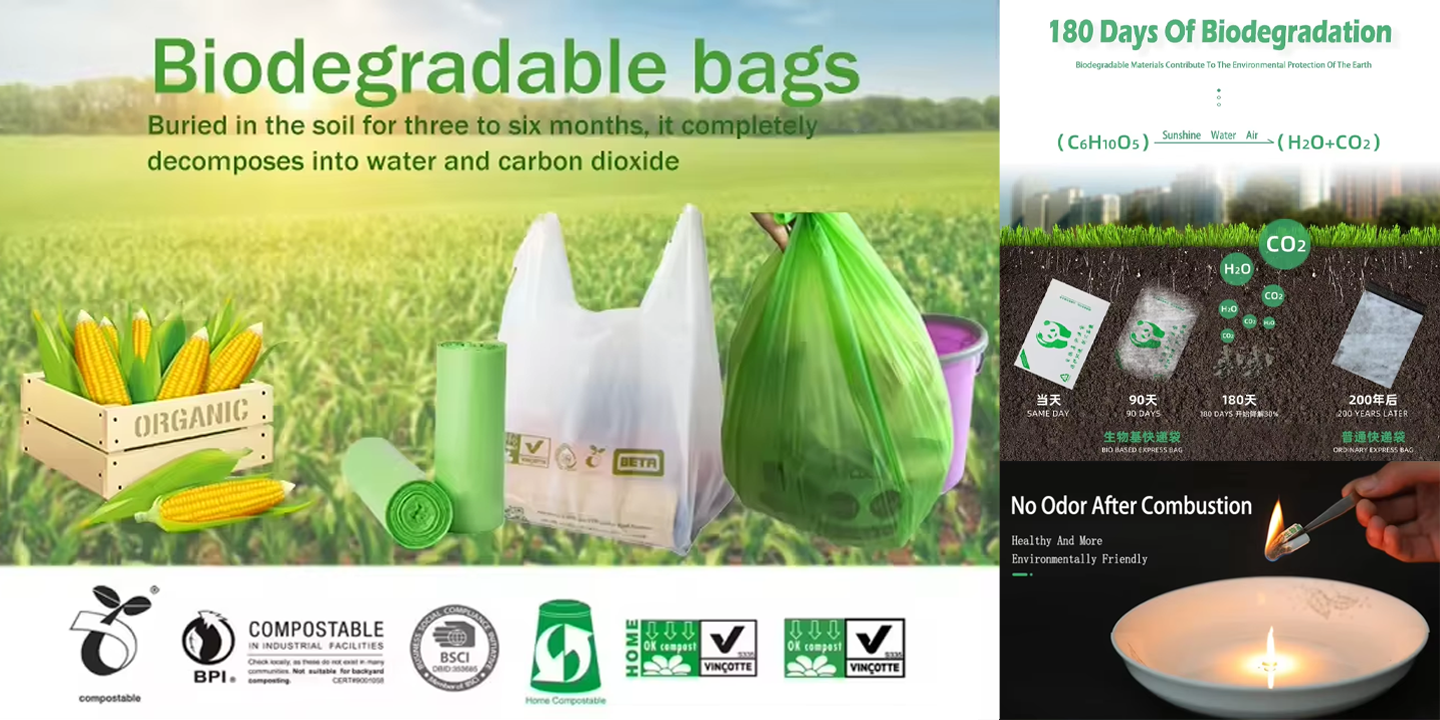
Biodegradable & Compostable Garbage Vest Bags
In a world increasingly aware of the environmental impact of plastic pollution, biodegradable and compostable garbage vest bags—also known as T-shirt bags—areemerging as a practical and planet-friendly alternative. Combining the familiar convenience of traditional plastic carriers with eco-conscious materials, these bags are designed to break down completely under composting conditions, helping reduce landfill waste and support a circular economy.
What Are Biodegradable and Compostable T-Shirt Bags Made Of?
These innovative bags are typically manufactured using plant-based materials such as cornstarch, cassava, or sugarcane, combined with compostable polymers like PLA (polilactic acid) and PBAT (polybutylene adipate terephthalate). This blend ensures the bags are both functional and compostable, breaking down into water, carbon dioxide, and biomass in industrial composting environments without leaving toxic residues or microplastics. It’s important to distinguish these certified compostable materials from “oxo-degradable” plastics, which merely fragment and do not fully biodegrade.
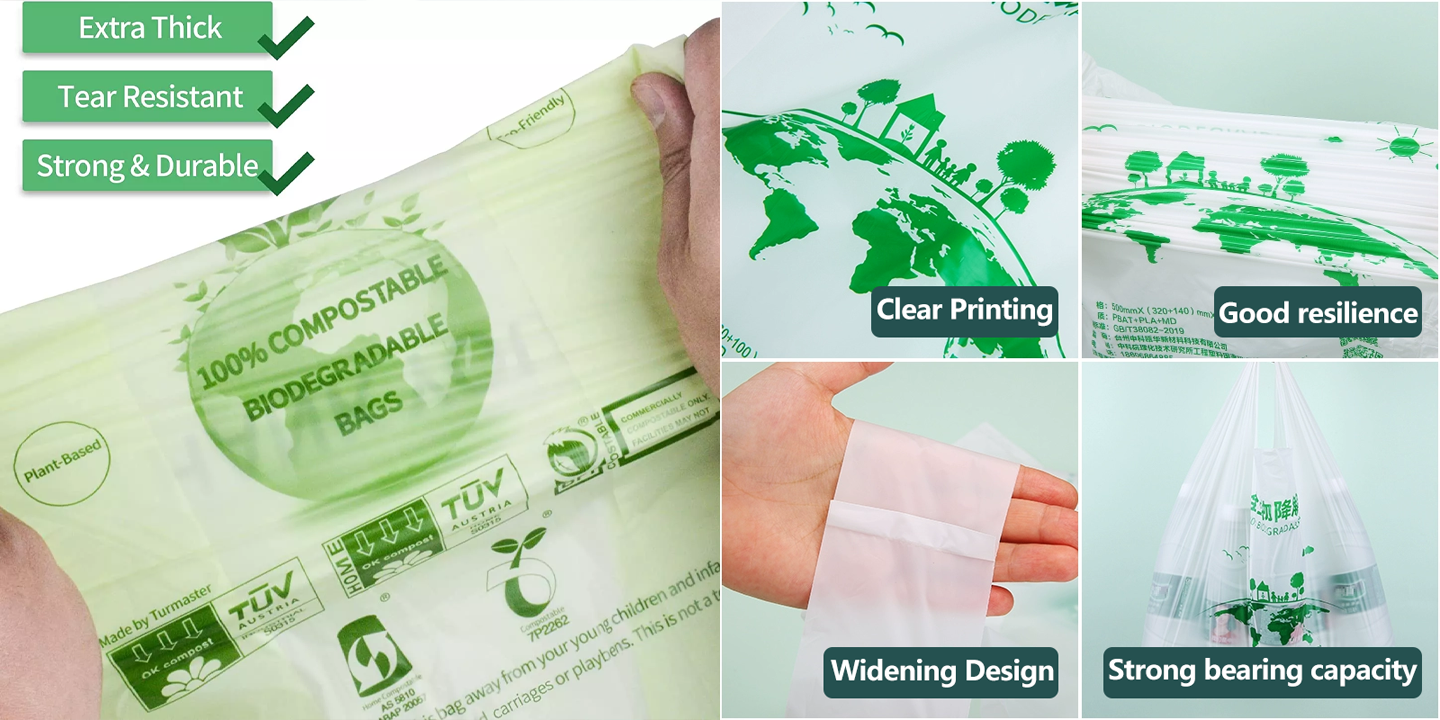
Key Benefits of Switching to Compostable Vest Bags
・ Reduction in Plastic Pollution: By replacing conventional polyethylene bags, which can persist in the environment for centuries, compostable options
significantly cut down on plastic waste in landfills and oceans.
・ Strength and Usability: Designed with vest handles, star-sealed bottoms, and side gussets, these bags offer excellent tear resistance, leak protection, and load-bearing capacity — making them suitable for everything from grocery shopping to wet organic waste collection.
・ Brand and Consumer Appeal: Businesses can enhance their sustainability profile by using custom-printed bags with eco-messages and disposal instructions. For consumers, compostable bags signal environmental responsibility and align with values that foster loyalty.
・ Regulatory Compliance: With many regions implementing bans or taxes on
single-use plastics, switching to compostable alternatives helps retailers and organizations stay ahead of legislation and reduce compliance risks.
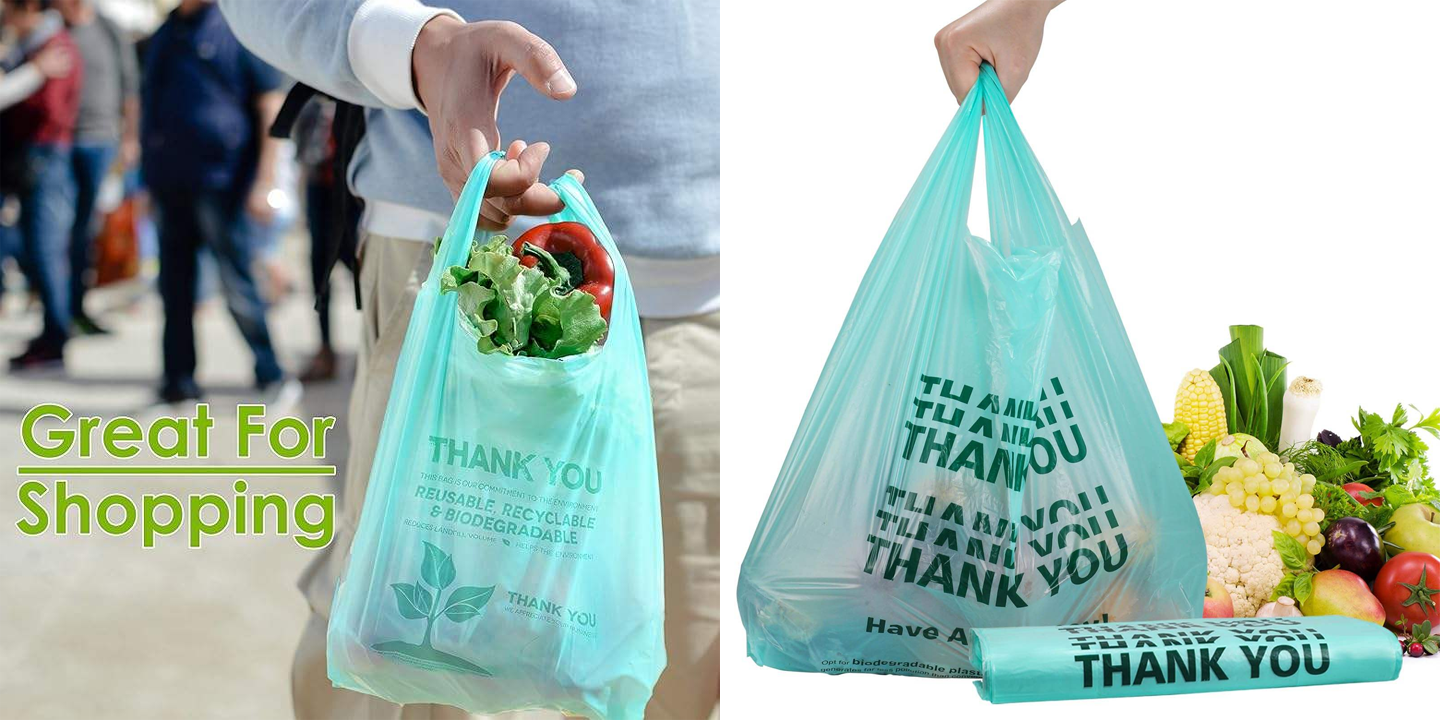
Where Do Compostable T-Shirt Bags Excel?
These bags are especially advantageous in settings that prioritize sustainability and waste diversion:
・ Retail and Grocery Stores: Ideal for produce, meat, and seafood sections thanks to their moisture resistance and durability. They serve as excellent compostable shopping bags or liners for organic waste.
・ Food Service and Hospitality: Perfect for takeaways, catering, and hotel housekeeping where reducing plastic footprint is a goal.
・ Events and Farmers’ Markets: Align with low-waste initiatives and appeal to eco-conscious patrons.
・ Municipal Organic Programs: Used in curbside collection of food scraps, certified compostable liners help reduce contamination and streamline composting operations.
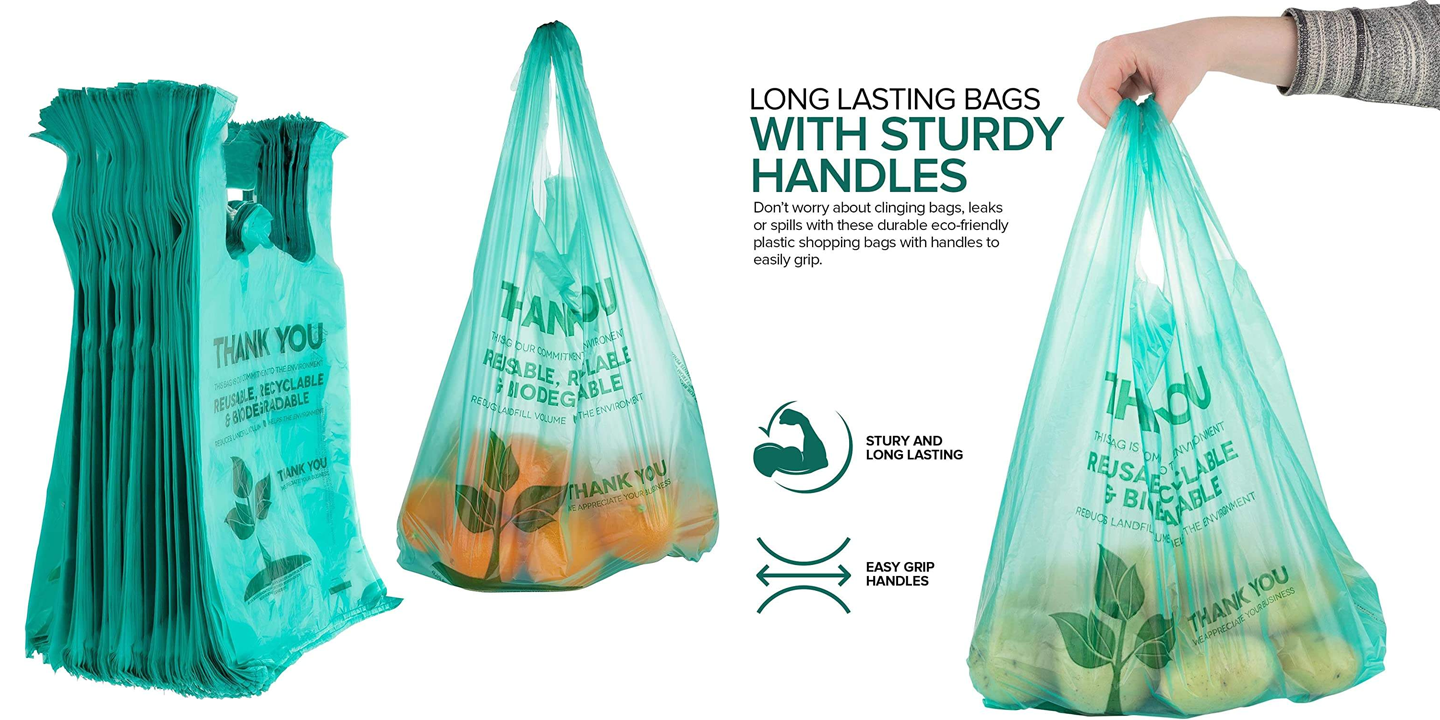
Material Highlights: Why They Matter
The use of renewable, bio-based resources means these bags have a lower carbon footprint compared to petroleum-based plastics. They are non-toxic, free from polyethylene, and often printed with water-based or soy-based inks for minimal environmental impact. Additionally, many compostable films offer a soft-touch, low-noise user experience—adding a premium feel compared to crinkly conventional plastic bags.
Conclusion
Biodegradable and compostable garbage vest bags represent more than just a replacement for plastic—they are a step toward meaningful waste reduction and ecological responsibility. Whether used in retail, food service, or at home, these bags offer a functional, sustainable solution that supports global efforts to create a cleaner, greener future. By adopting compostable bags, businesses and consumers alike contribute to a circular economy and help turn waste into worth.
